Jonathan Embry's organ recital at Vilnius Cathedral
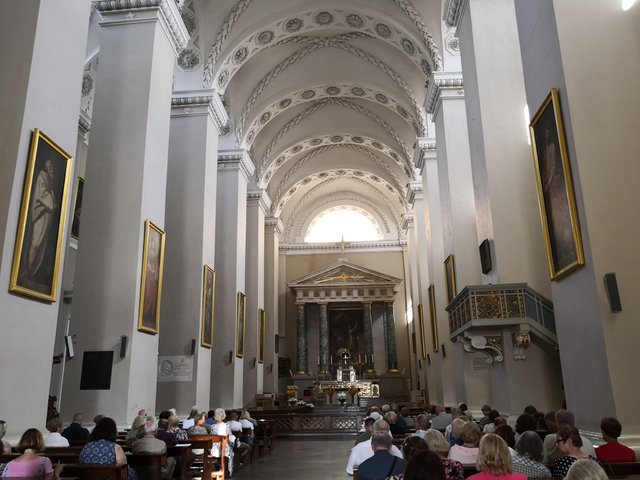
@laputis and I are sitting at Vilnius Cathedral right now where organ recital of Jonathan Embry from USA has just started. It's 27 degrees Celsius outside and inside we can enjoy the coolness of the building. Jonathan has just completed his doctoral studies from McGill University in Canada where he was a student of Hans-Ola Ericsson and Christian Lane.
The first piece on the program is organ partita "Wachet auf, ruft uns the Stimme" by Hugo Distler, a German composer who lived in the 1st part of the 20th century. The trills remind me of bird songs, Posaune in the pedals nicely emphasize the choral tune, imitations between voices in the fugue create a fabric of texture where you can feel the influence of Baroque masters, open fifth sounds arrive like from a Gothic period. The trills lead to a large and exciting culmination with chordal texture towards the end.
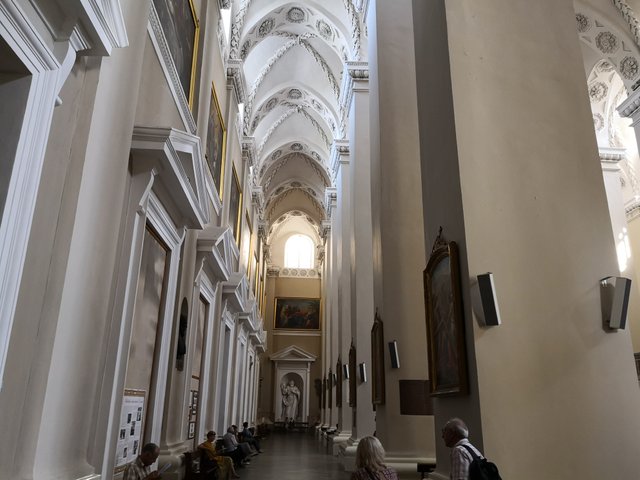
The next piece on the program is a chorale prelude "Allein Gott", BWV 662 by Johann Sebastian Bach from the Great 18 Chorales. It starts with points of imitation between the lower 3 parts played by the Principal 8' stop of the Swell division and soft 16' and 8' stops in the pedal. Not long after an ornamented elegant chorale line in soprano enters which sounds like from heaven because of tremulant some kind of flute combination, most likely 8', 4' and 2 2/3' in the Oberwerk.
Bach continues imitations between the lower parts in the second half of the choral prelude while the listeners are enchanted by the beauty of the melody, sonority of solo combination and lush harmonies. Nothing short of meditation. The piece ends with a brief recitative flourish in the right hand followed by the final cadence.
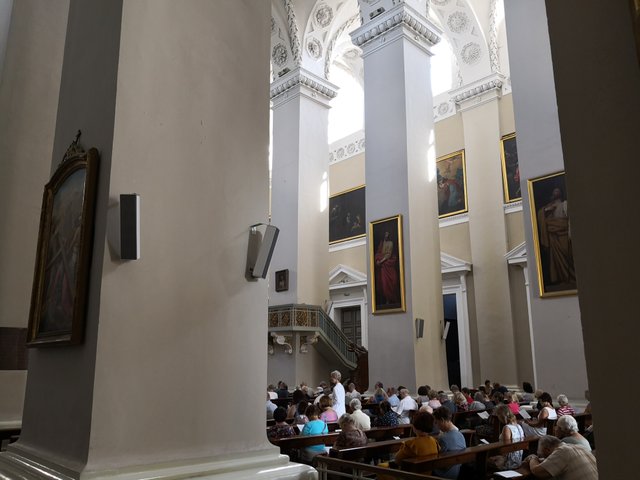
Jonathan Embry is not only an organist but also a composer. So the next piece on the program is his own Rhapsody No. 1. It reminds me of movie music in a good way. The trills and the sparkling high-pitched registration produce an impression of bird song. The tempo moves freely, like in a improvisation. Jonathan likes open 4th sounds. The organ is fit for that. A clever use of Vox Humana reed stop contrasted with the flutes. Really sounds like spontaneous invention. The interest level diminishes with decreasing tension but composer skillfully returns to the first episode of trills, open 4ths and high-pitched stops. The piece ends with an exciting episode of Principal Chorus registration in the manuals and Posaune in the pedals.
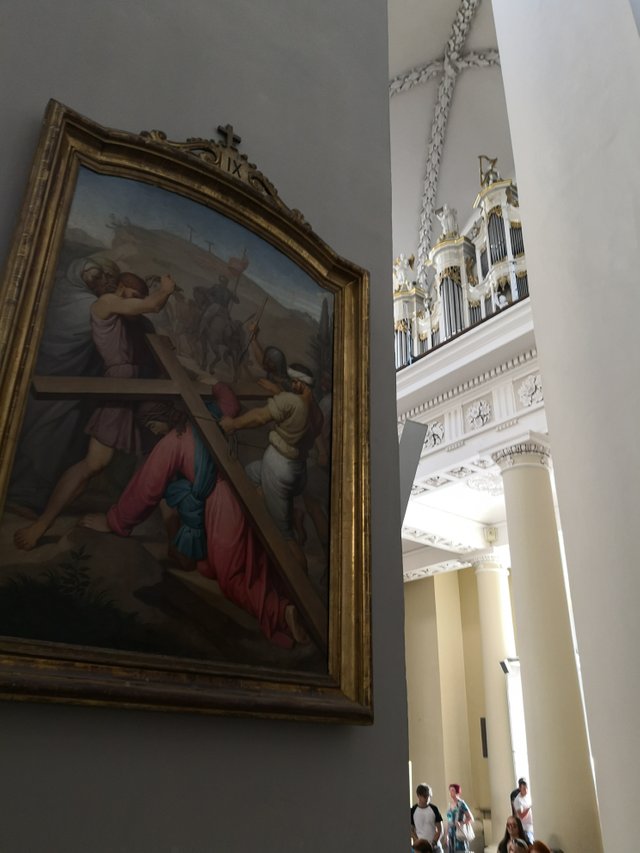
The next piece is opening "Tempo moderato" movement from the 4th Sonata by Joseph Gabriel Rheinberger, a German Romantic composer and organist. Here I hear exciting advanced harmonies and a Magnificat psalm tone juxtaposed with chromatic counterpoint. Although the organ at the Cathedral is Neo-Baroque, Jonathan does a fine job of employing a few foundational stops to make it sound as Romantic as possible. Without a device called "Rollschweller" or Crescendo Pedal it is very difficult to create natural waves of increasing and decreasing dynamic levels and the final episode seems to jump with mixtures out of context.
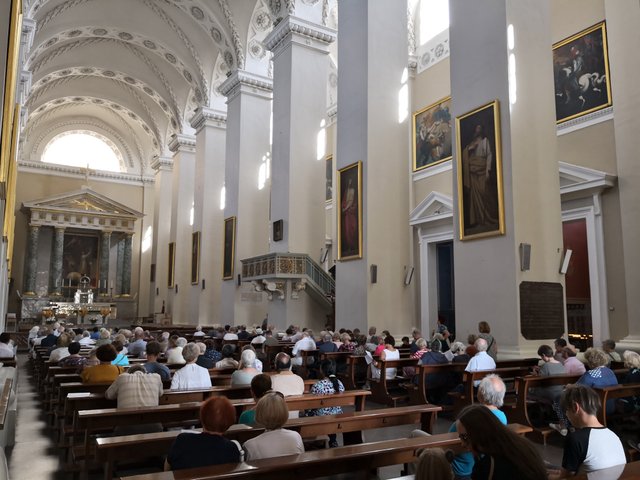
Jonathan ends his recital with two movements of "Es ist das Heil uns kommen her" by Matthias Weckmann, a North German Baroque composer from Hamburg. The pause before this piece is long enough that people started applauding and some kid yelled, "Bravooooo!!!"
So anyway, Jonathan now is playing Sextus Versus. This is a very complex chorale fantasia with 6 parts - solo part in the right hand, 4 parts in the left hand and the bass part in the pedals. The solo part is played by the Trompete 8', the lower manual part - by Principals 8' and 4' and the pedals take Posaune 16' and Trompete 8', among other stops.
Weckmann, being a student of Jan Pieterszoon Sweelinck, writes very complex counterpoint in the lowel parts which is reinforced by the solo flourishes, runs and diminutions in the right hand part.
Some drunk has walked into the church and started yelling in Russian, "I'm God! I'm God!" I'm not sure wheather he was compelled to do so by Weckmann's music or by the chanting of "Hareh Krishna" outside the Cathedral.
For a modern listener without specialized knowledge this kind of music is hard to bear. It doesn't mean that it shouldn't be played though. Finally the last plagal cadence has arrived...
Jonathan's last piece today is Septimus et Ultimus Versus from "Es ist das Heil" by Weckmann. He started it without any break from the previous verse, probably in fear that the audience will start clapping again...
This verse has 6 parts - two in each of the hands and two in the pedals! Very exciting to play those double pedals. I remember playing it some years ago at St Casimirus church here in Vilnius. For the final piece to be more effective I would love to have heard a much more powerful Organo Pleno sound. Perhaps if there was the 4th manual...
The recital has ended. Standing ovations from the audience. Time to greet Jonathan who agreed to be a guest on my Secrets of Organ Playing Podcast. Stay tuned...
And in the meantime @laputis and I will have some coffee with our friend @pauliakaz and discuss what we have just heard...
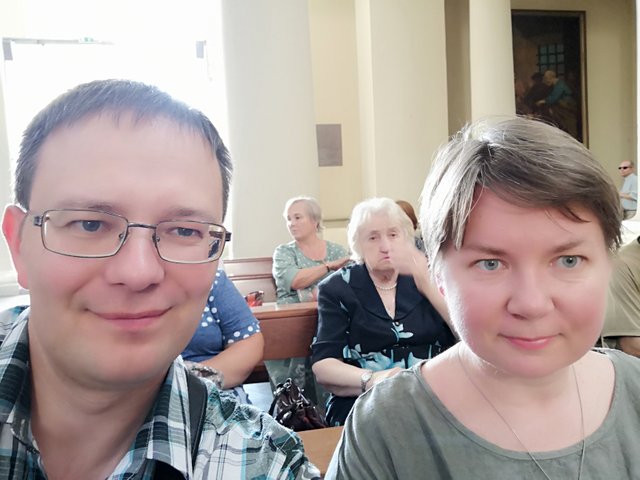
Consider using one of your witness votes on untersatz!
Run by contrabourdon and organduo—supporting the community with regular contests: Easy SBI Contest, Pinky and Spiky Drawing Contest and Secrets of Organ Playing Contest. Also powering the popular giphy bot and donating STEEM for deemarshall's creative contests.
Thank you so much for participating in the Partiko Delegation Plan Round 1! We really appreciate your support! As part of the delegation benefits, we just gave you a 3.00% upvote! Together, let’s change the world!